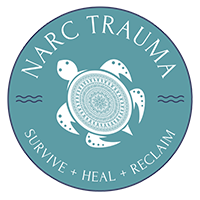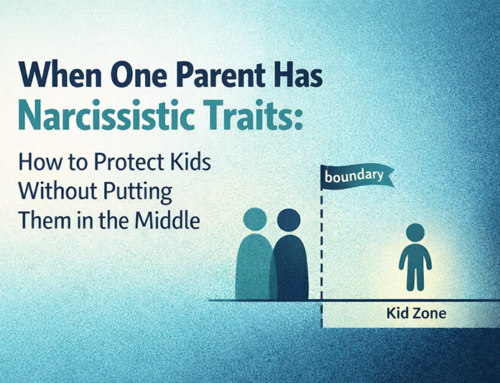Empty Nest Syndrome and the Shadow of Narcissistic Upbringing

By Brenda Stephens, Licensed Professional Clinical Counselor
Empty Nest Syndrome and the Shadow of Narcissistic Upbringing
Understanding the Double-Edged Struggle for Mothers
The transition to an empty nest can be a poignant milestone for any parent. It’s that point in life when one’s children, having reached adulthood, leave the home to forge their own paths. While the empty nest phase can evoke a range of emotions from liberation to loneliness, mothers who were raised by narcissistic parents may face a unique set of challenges. Their upbringing under the shadow of narcissism can profoundly influence how they perceive and cope with their newfound solitude. This article delves into the effects of the empty nest on mothers who grew up with narcissistic parents, shedding light on a struggle that is complex and deeply rooted in their past.
The Narcissistic Legacy
Growing up with a narcissistic parent is to live in a world where the child’s needs and feelings are often overshadowed by the parent’s self-absorption, manipulation, and quest for admiration. Mothers who experienced this may have had to contend with a childhood marked by emotional neglect, unpredictable affections, or even outright abuse. The long-term effects of such an upbringing can manifest in various ways, as survivors often grapple with low self-esteem, chronic self-doubt, and an overwhelming need for validation.
The Empty Nest: A Liberation or a Crisis?
For the average parent, the empty nest can elicit both pride and sorrow. However, for mothers who grew up with narcissistic parents, this stage can be particularly fraught. On one hand, it may feel like a liberation from the relentless demands of a role that offered them a reprieve from their narcissistic parent’s influence. They were allowed to be the caregivers they never had, to foster the nurturing environment they themselves were denied.
Yet, the silence left by departing children can also echo the hollow feelings from their own childhood. Absent the distractions of parenting, old wounds can resurface. Mothers might find themselves confronting unresolved issues of abandonment and value, desperately missing the purpose and identity that came with being a needed parent. They may question their worth now that the children they have poured so much of themselves into no longer require their constant attention.
The Double-Edged Sword of Reflection
An empty nest grants mothers the time and space for reflection, which is double-edged for those with narcissistic parents. One edge can cut open the scars of the past, bringing up memories of being undervalued and starved for affection. The other can be a scalpel for healing, offering a chance to process and understand their past trauma. This period of reflection can spur growth and recovery, helping mothers to rediscover their own identities apart from being a caregiver.
The Search for Self
Mothers who once navigated the whims of a narcissistic parent may have suppressed their own desires and ambitions. When the children leave, these mothers are often confronted with the question, “Who am I beyond a mother and a daughter?” The search for self can be daunting but also illuminating, as it offers an opportunity to pursue personal goals, interests, and relationships on their terms.
The Risk of Repeating Patterns
There’s a substantial risk that the behavior modeled by a narcissistic parent could be internalized and repeated, even unintentionally. This can be especially problematic when mothers find themselves alone, as they might inadvertently seek out relationships that mirror the unhealthy dynamics of their childhood. The empty nest can be a critical juncture to break this cycle through awareness, therapy, or support groups.
The Road to Recovery
Recovery is possible for mothers facing the dual challenge of an empty nest and a narcissistic upbringing. Therapy can offer a space to work through complex emotions and traumas. Support systems, whether comprised of friends, family, or support groups, provide empathy and understanding. Engaging in self-care activities and pursuing personal interests can foster self-compassion and independence. In essence, the empty nest can serve as a catalyst for transformation, prompting the exploration of a life defined by neither children nor parent but by the self.
Recognition of these struggles also highlights a societal need to understand and support those wrestling with the aftermath of narcissistic parenting. By bringing attention to this issue, we encourage a more compassionate dialogue around the nuances of motherhood, mental health, and personal growth.
Conclusion
The effects of the empty nest on mothers with childhoods marred by narcissism are far-reaching and multifaceted. This stage of life can amplify old traumas but also offer a portal to profound personal development. It’s a journey that requires patience, self-discovery, and often professional assistance, but it’s also one that holds the promise of a more self-determined and fulfilling future.
For those mothers navigating the choppy waters between their past and their empty nest, it’s crucial to know that while the voyage may be solitary at times, they are far from being alone. With understanding, support, and resilience, the empty nest can be transformed from a source of pain into a cradle for a reimagined life.







